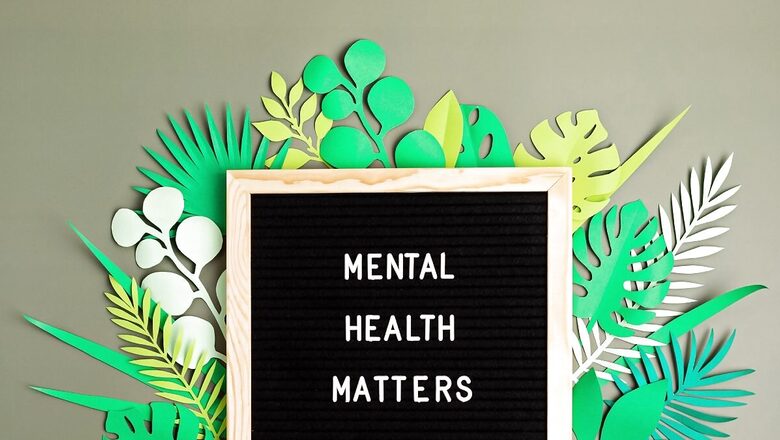
views
World Mental Health Day, observed annually on October 10, serves as a vital reminder to prioritise mental health. Mental health conditions can affect anyone, regardless of age, gender, or background. Understanding the various types of mental health conditions and being able to recognise their symptoms is essential in promoting early intervention and providing much-needed support. Let’s delve deeper into different types of mental health conditions and the key symptoms to look out for.
Depression
Depression is one of the most common mental health disorders worldwide. Its symptoms often include persistent sadness, loss of interest in activities, changes in appetite and sleep patterns, feelings of hopelessness, and difficulty concentrating. Physical symptoms like fatigue and headaches may also be present.
Anxiety Disorders
Anxiety disorders encompass conditions such as Generalized Anxiety Disorder (GAD), Panic Disorder, Social Anxiety Disorder, and Phobias. Symptoms typically involve excessive worrying, restlessness, palpitations, sweating, and a heightened sense of fear or dread in certain situations.
WATCH: 10 Motivational Quotes On Mental Health
Bipolar Disorder
Bipolar Disorder is characterised by extreme mood swings, with episodes of mania (elevated mood, impulsivity) and depression. Manic episodes may involve increased energy, risky behaviour, and decreased need for sleep, while depressive episodes mirror those of clinical depression.
Schizophrenia
Schizophrenia is a severe mental disorder characterized by hallucinations, delusions, disorganised thinking, and impaired social functioning. Individuals with schizophrenia may also display flattened emotions and difficulty in maintaining relationships.
Obsessive-Compulsive Disorder (OCD)
OCD is marked by intrusive, distressing thoughts (obsessions) and repetitive behaviours or mental acts (compulsions). Common obsessions include contamination fears or unwanted aggressive thoughts, while compulsions might involve repetitive handwashing or checking rituals.
Post-Traumatic Stress Disorder (PTSD)
PTSD can develop following a traumatic event and is associated with symptoms like flashbacks, nightmares, severe anxiety, and emotional numbness. Those affected may also experience hyperarousal, including irritability and difficulty sleeping.
Eating Disorders
Conditions like Anorexia Nervosa and Bulimia Nervosa are characterised by distorted body image and unhealthy eating habits. Symptoms may include extreme weight loss, excessive exercise, binge eating followed by purging or strict dietary restrictions.
Attention-Deficit/Hyperactivity Disorder (ADHD)
ADHD primarily affects children but can persist into adulthood. Common symptoms include inattention, hyperactivity, impulsivity, forgetfulness, and difficulty organising tasks or completing them.
Recognising the Symptoms
Recognising the symptoms of mental health conditions is crucial for early intervention and support. While each condition has its unique features, some general signs that indicate the need for attention include:
- Persistent changes in mood, behaviour, or personality.
- Social withdrawal and isolation.
- Difficulty concentrating or making decisions.
- Changes in sleep patterns or appetite.
- Physical complaints without apparent medical cause.
- Substance abuse as a coping mechanism.
- Thoughts of self-harm or suicide.
- Decline in school or work performance.
Recognising the diverse range of mental health conditions and their associated symptoms is the first step towards breaking down the stigma surrounding these issues. It is essential to remember that mental health conditions are treatable, and individuals facing them can lead fulfilling lives with the right support and treatment. Encouraging open conversations about mental health and seeking professional help when needed are vital steps towards a mentally healthier world.
















Comments
0 comment